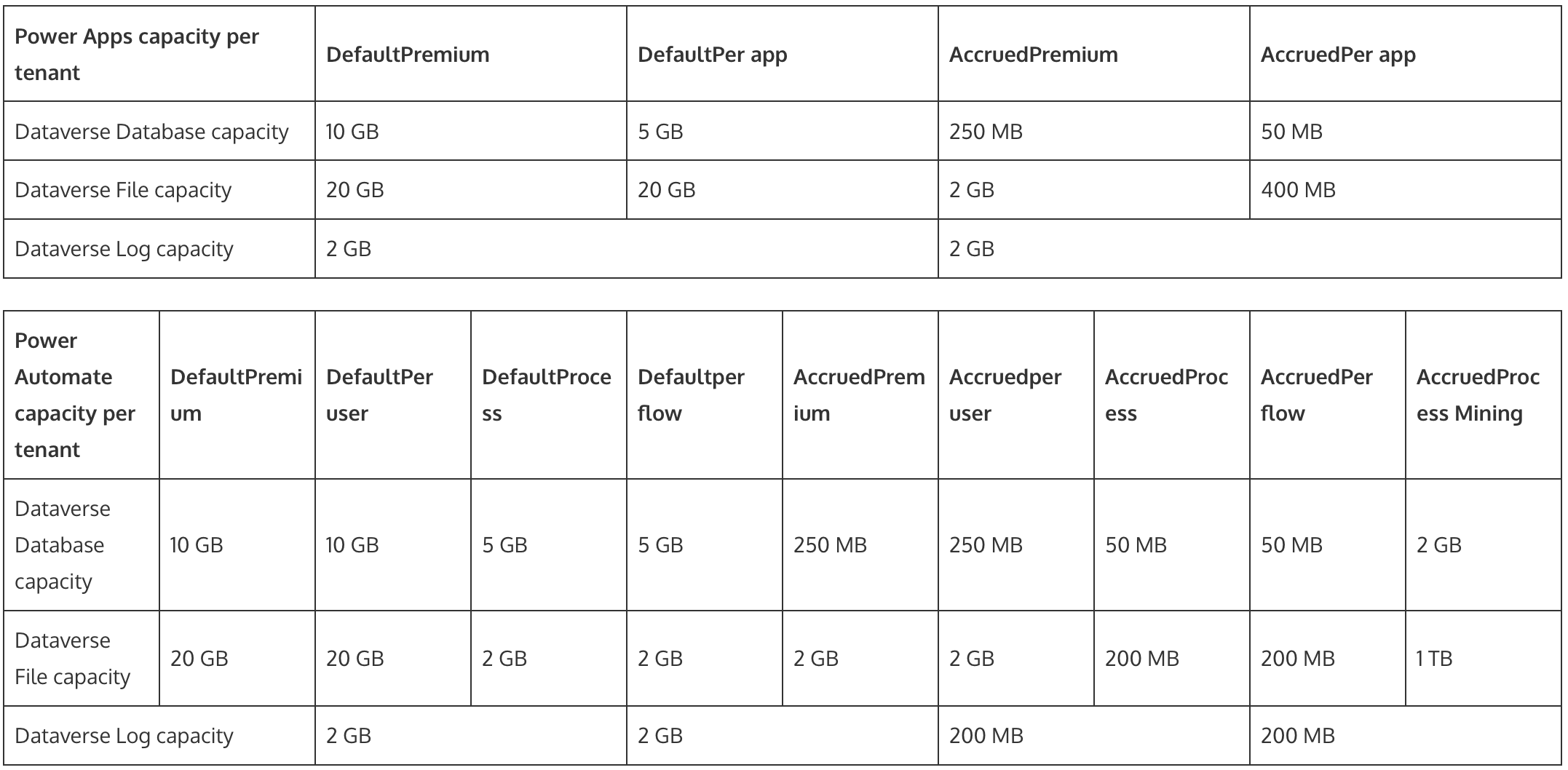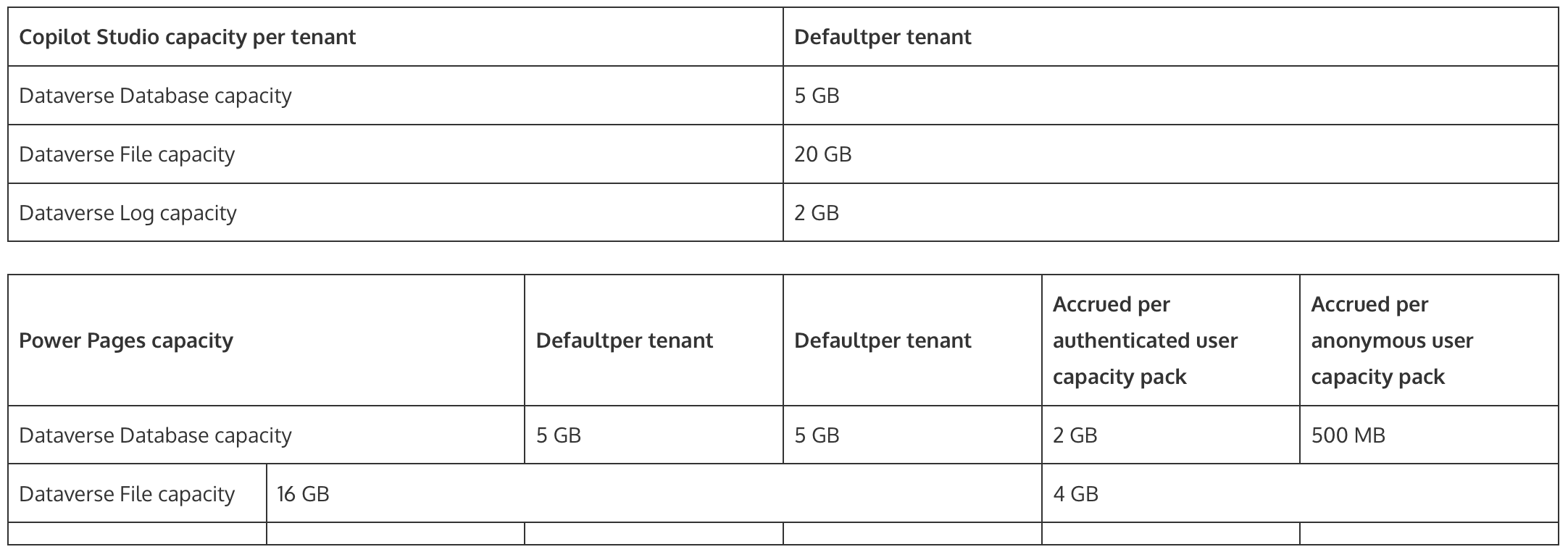Microsoft Dataverse is a cloud-based data storage and management service. It’s the data storage for Microsoft’s Power Platform, which includes Power BI, Power Apps, and Power Automate. The storage capacity is divided into three buckets; database, file and log capacity.
Database: Database capacity is primarily used for storing structured data and related metadata and logic.
File: File capacity is used for storing unstructured data such as files and associated metadata.
Stores attachments to notes or emails in Dynamics 365 Sales, Customer Service, and Field Service applications and Power Apps. These include documents, image files, videos, PDF files and other crucial files needed in an organization.
Log: Records table and column data changes over time for use in analysis and reporting purposes. Log capacity is designed to help organizations meet their auditing, compliance, and governance policies.
The actual files such as .pdf (or any other file attachment type) are stored in file storage. However, certain attributes needed to access the files are stored in the database as well.
To analyze your current storage usage, Microsoft has developed a Dataverse Management Portal. Here, you’re able to zoom-in to your actual usage, your capacity and go into more detail regarding which environment usage what storage.
Alternatively, a user with any of the above-mentioned roles has the option to grant permissions to the environment administrator to view the Capacity summary tab within the Tenant setting page.
The licensing storage model looks like the following image.
Capacity is gained through three sources.
The total capacity from these three different sources is divided among Database, File, and Log capacities.
Dataverse default and accrued subscription capacity entitlements
Power Apps, Power Automate, Copilot Studio and Power Pages default subscription capacities leverage the same tenant and infrastructure and will accrue across one tenant. Every tenant with a Power Apps, Power Automate, Copilot Studio or Power Pages license receives default capacity. In addition, for each Power Apps Premium, Power Apps per app, Power Automate Premium, Power Automate Process, Power Automate Process Mining and Power Pages license there is additional accrued capacity added to the tenant. For Dataverse for Teams capacity and service limits, please refer to the documentation here.


The first Power Apps OR Power Automate OR Copilot Studio OR Power Pages OR Dynamics 365 Sales, Customer Service, and Field Service subscription provides the one-time default capacity entitlement for the tenant. For example, if a new customer purchases Power Apps Premium, the tenant will receive 10 GB of default Dataverse Database capacity. Additional subscriptions do not add to the tenant’s default capacity.
When additional subscriptions are added to the tenant, additional Dataverse capacity may accrue to the tenant. Example: Assume that a new customer purchases 10 Power Apps Premium licenses and 20 Power Apps per app licenses. The total tenant wide pooled capacity will be as follows (note 1GB = 1,024MB):

The following licenses provide additional capacity: